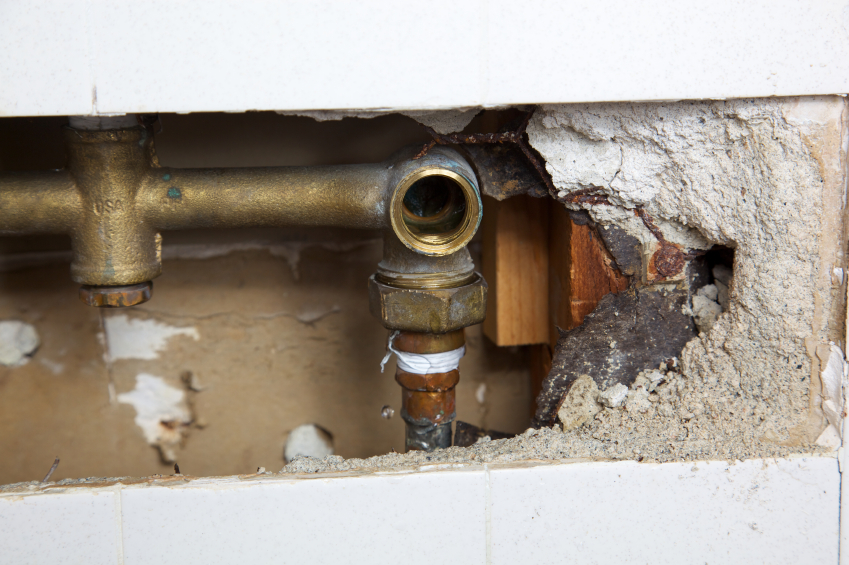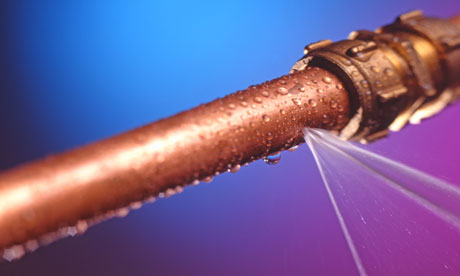Why is My Home Making Odd Plumbing Noises?
Why is My Home Making Odd Plumbing Noises?
Blog Article
How do you feel in regards to How To Fix Noisy Pipes?

To detect loud plumbing, it is essential to figure out initial whether the unwanted sounds happen on the system's inlet side-in various other words, when water is transformed on-or on the drain side. Noises on the inlet side have actually varied causes: extreme water stress, used shutoff and faucet parts, incorrectly linked pumps or various other devices, incorrectly placed pipe bolts, and also plumbing runs having too many tight bends or other limitations. Sounds on the drainpipe side generally originate from poor location or, as with some inlet side noise, a layout including tight bends.
Hissing
Hissing noise that happens when a tap is opened somewhat normally signals too much water stress. Consult your neighborhood public utility if you believe this problem; it will be able to tell you the water pressure in your location and can install a pressurereducing valve on the inbound water supply pipe if necessary.
Other Inlet Side Noises
Squeaking, squealing, damaging, breaking, and also touching normally are brought on by the development or tightening of pipelines, normally copper ones supplying hot water. The sounds occur as the pipes slide versus loosened bolts or strike close-by home framing. You can typically pinpoint the location of the issue if the pipes are revealed; simply comply with the noise when the pipes are making noise. Most likely you will certainly uncover a loosened pipe hanger or a location where pipelines exist so near to floor joists or various other mounting items that they clatter against them. Attaching foam pipeline insulation around the pipelines at the point of get in touch with ought to remedy the trouble. Make certain straps and hangers are safe and secure as well as offer adequate assistance. Where feasible, pipe fasteners need to be connected to enormous architectural aspects such as foundation wall surfaces as opposed to to framing; doing so lessens the transmission of resonances from plumbing to surfaces that can amplify and also move them. If affixing fasteners to framing is inescapable, wrap pipes with insulation or various other durable product where they call fasteners, and also sandwich completions of new bolts between rubber washing machines when mounting them.
Correcting plumbing runs that deal with flow-restricting tight or numerous bends is a last hope that should be taken on only after getting in touch with an experienced plumbing service provider. Regrettably, this situation is relatively common in older residences that may not have actually been built with interior plumbing or that have seen a number of remodels, especially by novices.
Chattering or Shrieking
Extreme chattering or shrieking that takes place when a valve or tap is turned on, which usually vanishes when the installation is opened completely, signals loosened or defective interior parts. The service is to change the valve or tap with a new one.
Pumps as well as devices such as washing makers and also dishwashing machines can move motor noise to pipes if they are poorly connected. Link such products to plumbing with plastic or rubber hoses-never stiff pipe-to isolate them.
Drain Sound
On the drain side of plumbing, the chief goals are to get rid of surface areas that can be struck by dropping or rushing water and to protect pipelines to have inescapable sounds.
In new building, tubs, shower stalls, commodes, and also wallmounted sinks and also basins should be set on or against durable underlayments to decrease the transmission of noise with them. Water-saving commodes and also taps are much less noisy than conventional models; install them instead of older types even if codes in your area still allow using older fixtures.
Drainpipes that do not run vertically to the basement or that branch into straight pipeline runs sustained at floor joists or other framing present especially bothersome sound troubles. Such pipelines are large enough to radiate significant vibration; they likewise bring substantial quantities of water, that makes the scenario worse. In new construction, specify cast-iron soil pipes (the large pipes that drain bathrooms) if you can afford them. Their massiveness consists of much of the noise made by water passing through them. Also, avoid routing drainpipes in walls shared with bedrooms and rooms where people gather. Walls containing drains need to be soundproofed as was defined previously, making use of dual panels of sound-insulating fiber board and also wallboard. Pipelines themselves can be covered with special fiberglass insulation produced the purpose; such pipes have a resistant plastic skin (often having lead). Outcomes are not constantly satisfying.
Thudding
Thudding noise, typically accompanied by shuddering pipes, when a tap or device shutoff is shut off is a problem called water hammer. The sound as well as vibration are caused by the resounding wave of stress in the water, which unexpectedly has no location to go. In some cases opening a valve that discharges water quickly right into an area of piping including a restriction, elbow, or tee fitting can produce the very same problem.
Water hammer can typically be cured by mounting installations called air chambers or shock absorbers in the plumbing to which the problem valves or taps are linked. These devices permit the shock wave produced by the halted flow of water to dissipate airborne they consist of, which (unlike water) is compressible.
Older plumbing systems may have brief upright sections of capped pipeline behind walls on faucet competes the same function; these can ultimately fill with water, lowering or ruining their performance. The remedy is to drain pipes the water system entirely by turning off the primary water system valve and also opening all taps. Then open the major supply shutoff as well as close the taps individually, starting with the tap nearest the valve and also ending with the one farthest away.
WHY IS MY PLUMBING MAKING SO MUCH NOISE?
This noise indeed sounds like someone is banging a hammer against your pipes! It happens when a faucet is opened, allowed to run for a bit, then quickly shut — causing the rushing water to slam against the shut-off valve.
To remedy this, you’ll need to check and refill your air chamber. Air chambers are filled with — you guessed it — air and help absorb the shock of moving water (that comes to a sudden stop). Over time, these chambers can fill with water, making them less effective.
You’ll want to turn off your home’s water supply, then open ALL faucets (from the bathroom sink to outdoor hose bib) to drain your pipes. Then, turn the water back on and hopefully the noise stops! If you’re still hearing the sound, give us a call to examine further.
Whistles
Whistling sounds can be frustrating, as sometimes the source isn’t easily identified. However, if you can pinpoint which faucet or valve that may be the cause, you’ll likely encounter a worn gasket or washer — an easy fix if you replace the worn parts!Whistling sounds from elsewhere can mean a number of things — from high water pressure to mineral deposits. Your best plan of attack here is to give our plumbing experts a call. We’ll be able to determine where the noise is coming from and what the cause may be, then recommend an effective fix!
Cracks or Ticks
Cracking or ticking typically comes from hot water going through cold, copper pipes. This causes the copper to expand resulting in a cracking or ticking sound. Once the pipes stop expanding, the noise should stop as well.
Pro tip: you may want to lower the temperature of your water heater to see if that helps lessen the sound, or wrapping the pipe in insulation can also help muffle the noise.
Bangs
Bangs typically come from water pressure that’s too high. To test for high water pressure, get a pressure gauge and attach it to your faucet. Water pressure should be no higher than 80 psi (pounds per square inch) and also no lower than 40 psi. If you find a number greater than 80 psi, then you’ve found your problem!
Next step is to give us a call in order to install a pressure regulator. Trust us, you don’t want to wait to resolve this issue. Not only is the sound annoying, but high water pressure can be destructive to your home — including damaging certain appliances, like your washer and dishwasher.
Dripping
You might be accustom to the slow quiet drip your kitchen faucet makes. You might have even tuned out your bathroom sink dripping and drabbing all day long — but it’s time to find its cause.
A slow drip could signify a variety of easy to fix issues, such as a worn out O ring, or loose part. And by ignoring the drip, you could be wasting up to 2,000 gallons of water a year! So start conserving water — get it looked at ASAP.
https://www.pwessig.com/blog/2018/december/why-is-my-plumbing-making-so-much-noise-/

Hopefully you enjoyed our article about Why is My Home Making Strange Plumbing Noises. Thanks so much for finding the time to read our blog post. Are you aware of someone else who is fascinated about Why Do My Pipes Make Noises? Please feel free to share it. Thanks so much for your time spent reading it.
Get Started Report this page